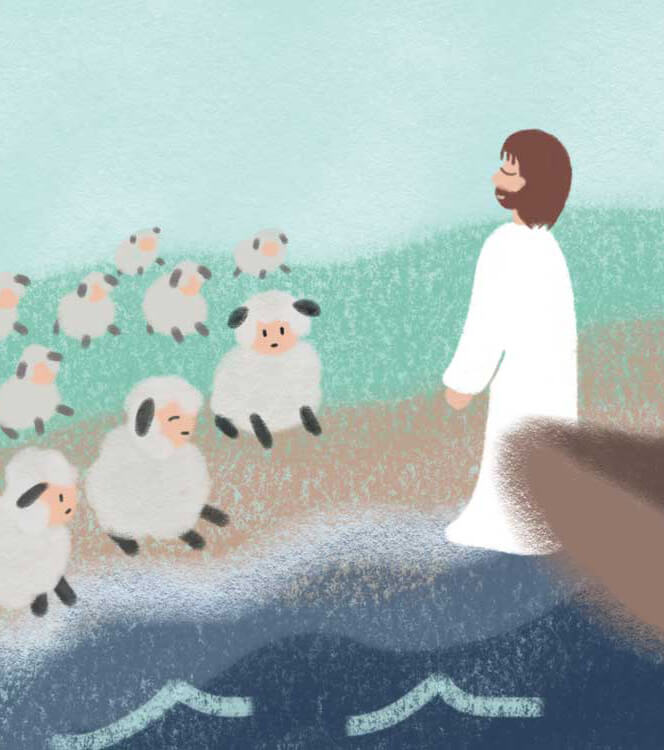 JEREMIAH 23:1-6
JEREMIAH 23:1-6
 EPHESIANS 2:13-18
EPHESIANS 2:13-18
 MARK 6:30-34
MARK 6:30-34
One general thrust of the Old Testament books as a whole is that the shepherds given the responsibility to look after God’s sheep, i.e. God’s people, had failed to do a good job. They were looking after their own interests, not the interests of the sheep. As a result, God promised to punish these selfish and irresponsible shepherds, and replace them with good shepherds who would look after His sheep properly. This theme, found in this Sunday’s first reading (Jer 23:1-6), can also be found in other OT books, particularly Eze 34 and Zech 11.
The Christian reading of such OT passages sees the bad and good shepherds as the leaders of Israel and the leaders of the New Israel – the Church – respectively. Similarly, “God’s sheep” in the OT refers to the people of Israel, but it also points forward to the people of the Church. (This method of reading the Scripture is called “typology”. See CCC 128-130, 1094 for explanation and illustration.)
As usual, the goodies promised by God are often more plentiful than we expected. On further examination, God’s promise to send good shepherds actually went one step further: “I myself will gather the remnant of my flock from all the lands,” the Lord said (Jer23:3). As it turned out, not only would God send good shepherds, He Himself would be our Shepherd!
Now we can understand better why in this Sunday’s gospel reading when Jesus saw the vast crowd waiting for him to disembark from his boat, “his heart was moved with pity for them, for they were like sheep without a shepherd” (Mk 6:34). This is because Jesus knew he was the only Shepherd – the ultimate Shepherd – who could really look after them properly! With this understanding in mind, Jesus’ good shepherd discourse in John 10 now makes perfect sense: “I am the good shepherd. A good shepherd lays down his life for the sheep” (Jn 10:11).
Thus in the responsorial psalm we chant together with David, “The Lord is my shepherd; there is nothing I shall want.”
